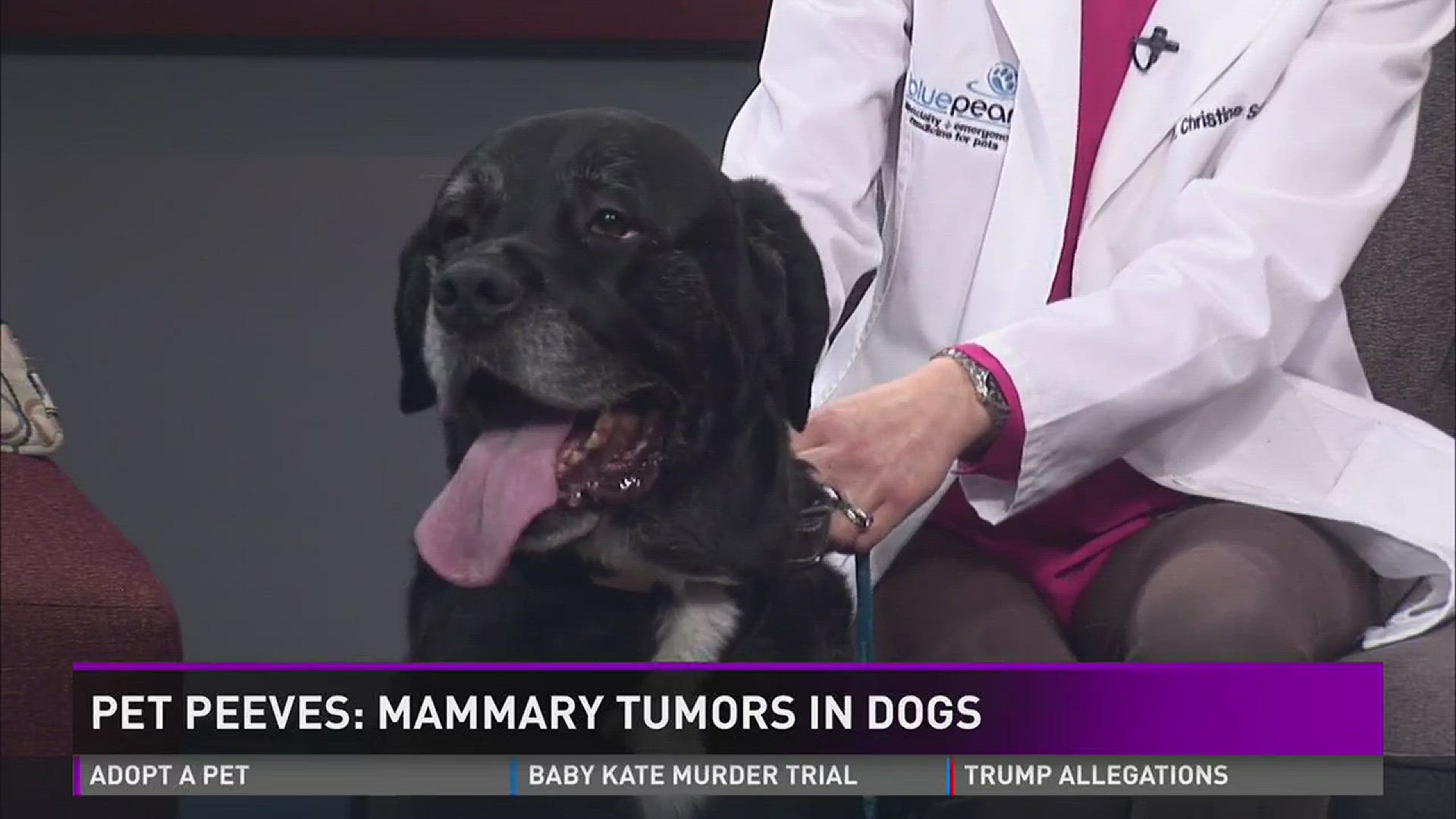Mammary cancer is the most commonly diagnosed tumor in intact female dogs that are older than seven years of age. However, male dogs rarely develop such a tumor.
Approximately half of all mammary tumors are malignant (cancerous) and of those, approximately half have spread at the time of diagnosis.
Benign tumors typically do not progress to malignant tumors but cause great concern to the pet owner and veterinarian because they are indistinguishable from malignant tumors. A biopsy of the tumor is the only test that can differentiate which type of tumor is present.
In addition, a dog that has multiple mammary tumors may have some that are benign and others that are malignant; therefore, a pathologist must evaluate all masses microscopically.
A related but non-cancerous condition called mammary gland hyperplasia is a condition in which the mammary glands develop lumps around the time of an intact female dog’s heat cycle. In patients with this type of growth, once the hormone levels associated with the heat cycle go away, so do the mammary masses.
Risk factors
Hereditary factors, although important in humans, have not been definitively linked to mammary cancer in dogs. Early spaying has shown to dramatically reduce the risk for mammary cancer. If spayed before the first heat, the risk for developing a mammary cancer is less than 1%. After the third heat the risk for development of a mammary tumor increases dramatically to 26%.
Spaying your companion after the third heat does not have a sparing effect on mammary cancer but minimizes the risk for development of a life-threatening infection in the uterus called pyometra. Another risk factor for development of mammary tumors is obesity.
Signs
A mass (lump) in the mammary glands is the most common sign of breast cancer. The fourth and fifth mammary glands (glands closest to the groin) are most commonly affected. The mass may be normal color, red or purple, soft, hard, and in some cases ulcerated. The breast tissue, which extends from the front limbs to the hind limbs, over the chest and abdomen, may have multiple masses in different locations.
If mammary cancer has spread, the pet may have lameness due to bone involvement, breathing difficulty due to lung involvement, or other generalized signs, such as weight loss and poor appetite.
Diagnosis
A careful evaluation of the patient’s history is made to determine if the dog had recently gone through a heat cycle, had a litter of puppies, or had a recent pseudo-pregnancy. If this is the case, the masses may resolve in a few weeks with no treatment.
The oncologist may recommend a fine needle biopsy of the mammary tumors and any enlarged lymph nodes. A complete blood count, chemistry profile, and urine testing are done to evaluate the health status of your companion’s internal organs prior to anesthesia and surgery.
Chest X-rays and abdominal ultrasound are used to identify visible spread of the cancer; please note that microscopic spread of tumor to other organs cannot be detected with X-rays and ultrasound.
Treatment
Surgery is an essential treatment for mammary tumors. Generally, one or more mammary gland is removed in an effort to remove the mass completely which can be curative for the majority of mammary tumors in dogs.
Chemotherapy may be recommended if an aggressive tumor is identified or if there is a concern for metastasis (spread of disease).
Unlike humans, most dogs do not lose their hair and most dogs have only mild side effects from the medication. Most dogs continue to feel good and maintain a very good quality of life throughout treatment.
For more information on this subject, speak to the veterinarian who is treating your pet.
BluePearl Veterinary Partners is located in Grand Rapids on the Medical Mile just East of Fuller. Click here to visit their website.

